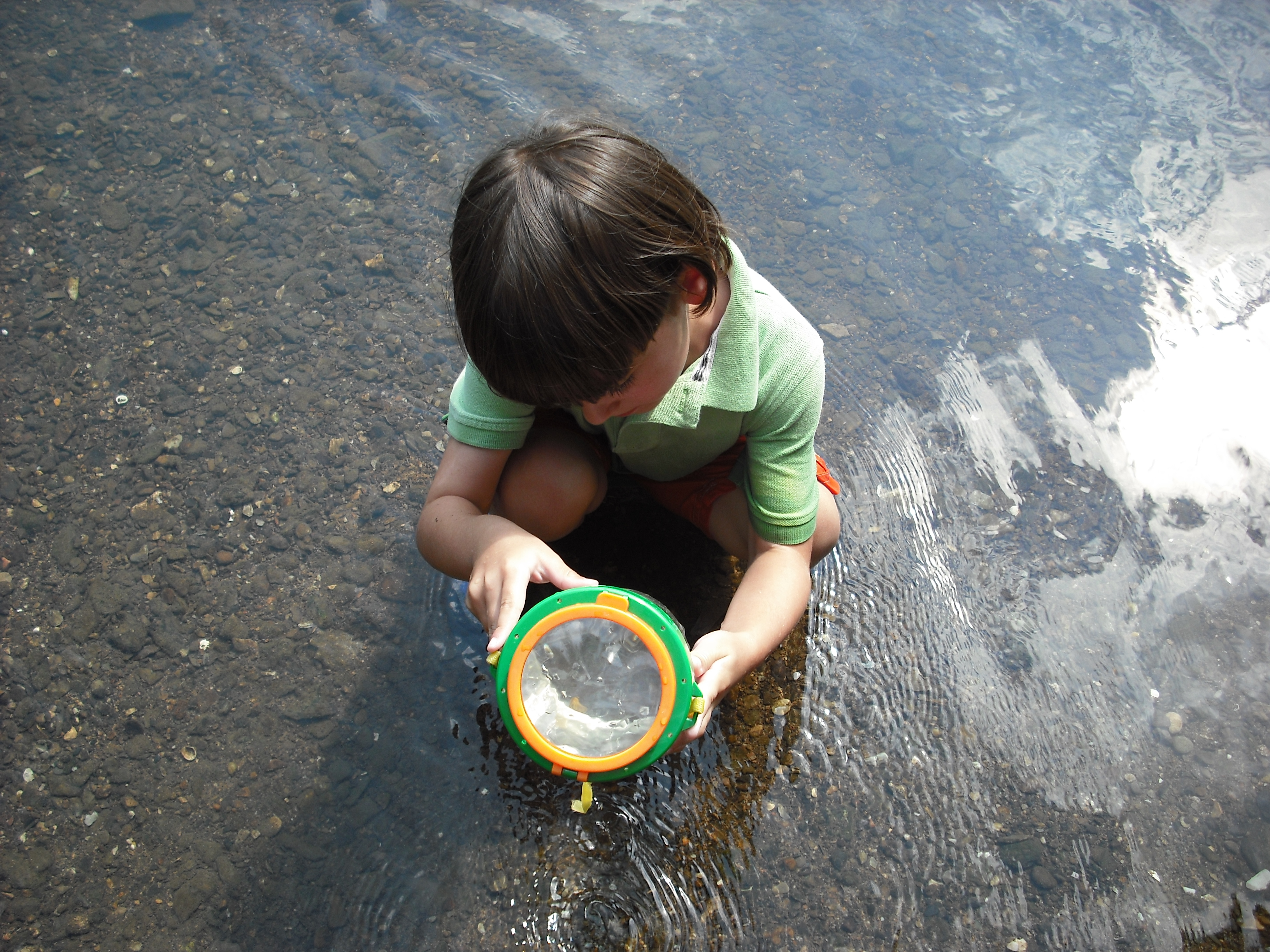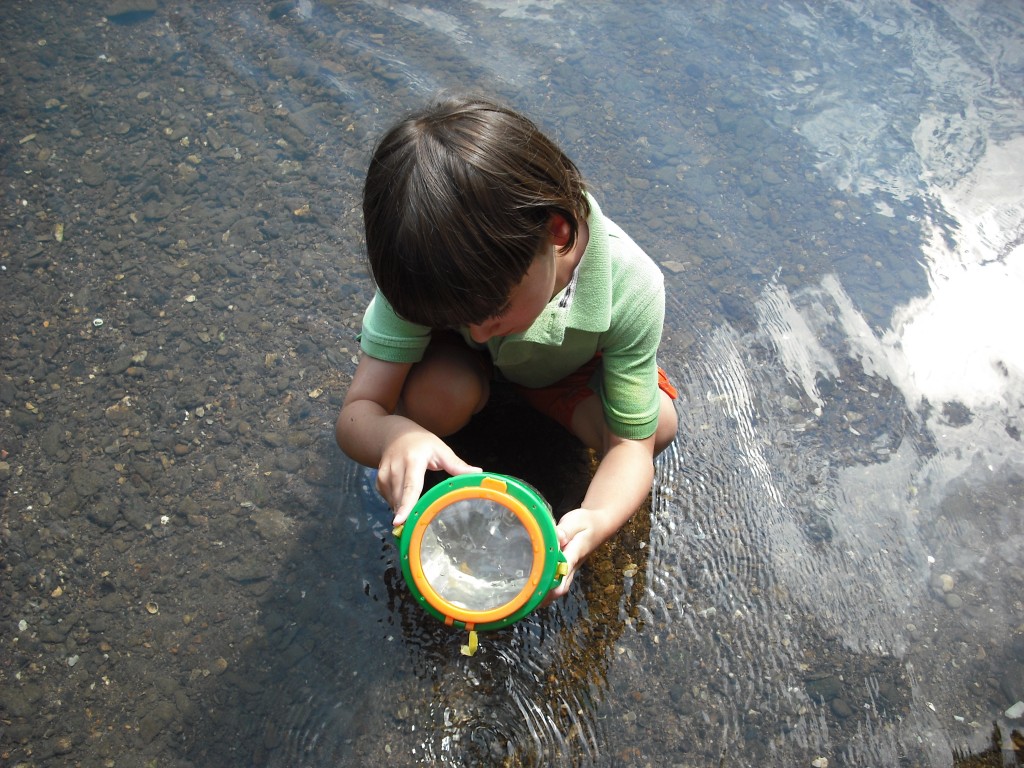1. Tell us a bit about your family, and how you came to homeschooling.
We are a family of three, living in Pennsylvania. Michael and I have been together since 1994. In 2000, I entered graduate school while still searching for a full-time teaching job in the public school system. I earned my M.Ed. but I also realized, I have no desire to teach in the public school system. Soon after Benjamin was born in 2004, Michael and I knew we did not want to place him in public school. We wanted his individuality, his imagination and his passion to remain intact and neither one of us felt this would happen in a public school environment.
We began seeking alternatives. For some time we were sure we would enroll him in one of Pennsylvania’s public cyber charter schools. However, in 2009 I was diagnosed with breast cancer. Benjamin was to start kindergarten in 2010-2011. I was afraid I could not keep up with the stringent demands of a public cyber charter school, as I knew I had surgeries looming in the future. While I was in treatment (chemotherapy) I began reading about traditional homeschooling. Fortunately, I discovered Pennsylvania offers parents an educational alternative, the Private Tutor Law. Essentially, because I am a PA-certified instructor, I may keep Benjamin out of school as long as I (or another qualified individual) acts as his tutor. So, by the time I was finished with my treatments and surgeries and kindergarten was set to begin, we had decided to traditionally homeschool under Pennsylvania’s Private Tutor Law.
2. You describe yourself as an unschooler. What does that mean to you and your family?
I never really gave much thought to the term unschooling until the fall of 2010. As I said, I was already resigned to the fact we were traditionally homeschooling and I was happy to use a Charlotte Mason-inspired approach mixed with a bit of E.D. Hirsch’s educational philosophy (Core Knowledge). As an educator, I viewed both approaches as more than sufficient! Then, I happened to find a little book printed in the late 1980s (The Homeschool Reader). Inside, I discovered articles written by the late John Holt. I will never forget that moment.
Inspired by Mr. Holt, I read Learning All the Time. Then I sought out, How Children Learn and How Children Fail. I read portions aloud to my husband and we agreed…we must stop planning lessons and simply observe Benjamin. What does he enjoy? What does he crave? How does he approach problems? Why does he react the ways he reacts?
I stopped introducing concepts and orchestrating lessons. Soon, our household seemed calmer. Each day progressed smoothly. I was so excited to share our new found rhythm with the world, I wrote a 3-part series aptly titled {Clarity}, and posted it on my blog. Beginning in October 2010 we began referring to ourselves as unschoolers. The term unschooler carries with it a lot of baggage–to be clear, our homeschooling philosophy reflects Holt’s definition.
3. What is your favorite thing about homeschooling?
Allowing Benjamin freedom to pursue his interests is the best reward! In one day he can explore Mayan temples, learn about removing sod, build a catapult, observe frogs and leisurely read Don’t Let the Pigeon Drive the Bus. All of this, with little to no pressure (i.e. time constraints, tests, homework). He can watch a film on Machu Pichu and know he’s not going to be quizzed. And I know he is truly interested in it–not simply teacher-pleasing (or in the case of a homeschooler, parent-pleasing). Also, we are fortunate to live in an area close to many historical sites. We can pick up and travel to Washington D.C., Philadelphia, New York City or simply, Gettysburg! If Benjamin was enrolled in public school he would miss out on so many of the extra-curricular benefits of homeschool.
4. The hardest thing?
Unfortunately, wanting to pursue every desire of one’s child can cost a lot of money. If there is one difficulty we experience in our homeschooling, it’s lack of funding to do everything we would like to do. I would love to purchase the entire Story of the World audio book set (approximately $100 for all four volumes). Benjamin is a history buff. Sadly, we have to settle for purchasing each CD-set as we can afford to do it. I would love to travel to Plimoth Plantation every November so we can immerse ourselves in the history behind the First Thanksgiving! When Benjamin was showing signs of his desire to learn to read, I had to think long and hard about purchasing a subscription to Headsprout ($199). But now, a few months later, he’s reading with confidence.
5. What do you to to get ready for “back to school?” Anything?
Preparation for Year One or First Grade included a couple of things. Aside from close observation of my child–which is extremely important–I spent most of my time making Amazon Wish Lists to organize resources. In addition, I made a list of Benjamin’s current interests. This also helped me plug our activity into subject categories within our state’s homeschool/Private Tutor Law.
6. Does your child ever ask to go to public school?
As for public school, Benjamin has little to no knowledge of it–and as a result, does not ever ask to attend. When people ask him about school he proudly tells them, “I’m homeschooled.”
7. What does a typical day look like at your house?
A typical day in our household is nothing at all like the day of a public school child. We rise around 8:00 AM and eat breakfast together. After that, we do what feels right for that day–some days it’s Playmobil play all day. Other times, a visit to Grandma’s or a hike in the woods. Some days are spent in pajamas and others, on a playdate with friends.
8. What is your best homeschooling tip?
If I had to offer someone advice–someone considering homeschooling–it would be to choose a few well-respected authors’ works (John Holt, Sandra Dodd, Charlotte Mason, John Gatto) and read a few different philosophies. Just a few. Then, think about the personality of every member of your family. I wholeheartedly believe the family dynamic is what makes or breaks a home school. Each child is an individual. Each parent carries within him/her some educational philosophy. All of this must be considered. If one child loves doing coloring pages, print more! If his sister prefers hands on science projects…fill a tray with simple experiments.
Flexibility is key. If your son enjoys history by listening to audio books rather than hearing your dry readings of a text…invest in more audio books! If mom and dad disagree about some aspect of homeschooling, find common ground…somewhere the child(ren) will thrive.
9. As a homeschooling family, what is the one thing you couldn’t do without?
I know that as a homeschooling family one of the most important resources we have is our public library. I can reserve books online from any library in the county. In fact, I have two library cards for two different counties. We can preview books we’re considering buying before we spend the money! We can rent DVDs, VHS tapes, cassettes and CDs. We attend FREE programs, earn rewards during the Summer Reading Program and of course, meet friends there, too!
10. Any last thoughts to add?
Last thought: Reflect. Reflect. Reflect. Take time at the end of every single day and evaluate every hour from the time you rose to the time your kids went to sleep. Did the hours flow into one another seamlessly or was there a struggle? What caused the hiccup(s) in your day–miscommunication? Misinterpretation?
I’ve found it is almost always just that simple…whenever Benjamin and I struggle I try to rewind and see where things went sour. Sometimes it’s as simple as a poor choice of words. Other times, it’s my adult reaction to my six-year-old’s action. Or vice versa. Discussing things is the simplest remedy. And apologies (when necessary) are of utmost importance.
—-
Many thanks, Jessica, for your insights and inspiration!





